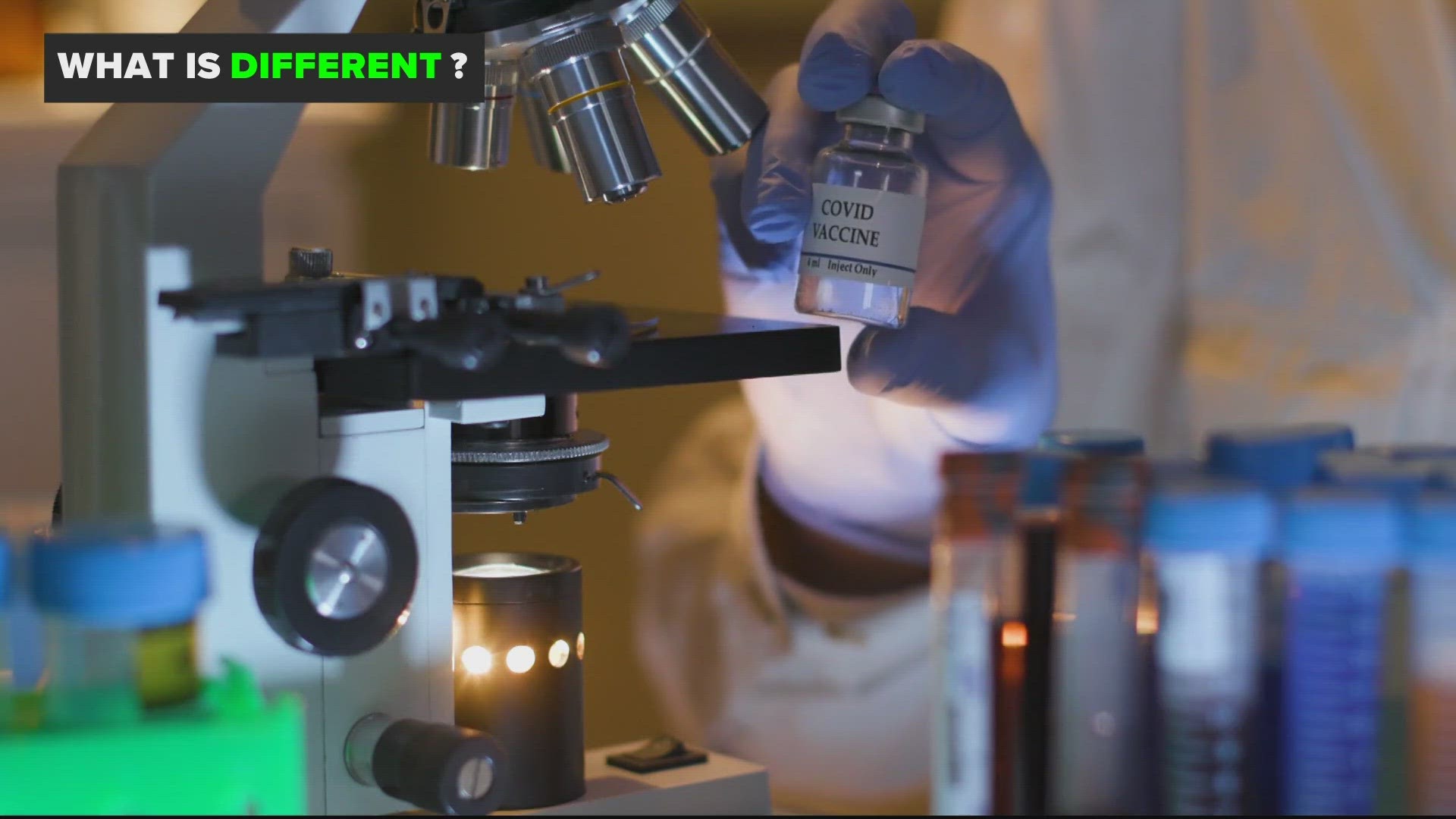WASHINGTON — The CDC and FDA have both given the green light to a new COVID-19 vaccine. This comes as case numbers rise — and ahead of an expected fall surge. So what does the new vaccine mean for you and your family?
THE QUESTIONS:
These new vaccines are expected to be available this week. What’s different about this shot? Who’s recommended to get one? Who’s footing the bill?
THE SOURCES:
WHAT WE FOUND:
What’s different about this shot?
These are updated versions of the Pfizer and Moderna shots designed to target the newest variants that researchers say is responsible for most new cases of COVID-19.
Like previous versions of the shots, they won’t be foolproof against infection, but the FDA says they are proven to reduce severe COVID-19 symptoms, hospitalizations, and deaths.
“The virus that causes COVID-19 is always changing, and protection from COVID-19 vaccines declines over time,” reads a CDC release from Tuesday afternoon announcing the changes. “Receiving an updated COVID-19 vaccine can restore protection and provide enhanced protection against the variants currently responsible for most infections and hospitalizations in the United States. Last season, those who received a 2022-2023 COVID-19 vaccine saw greater protection against illness and hospitalization than those who did not receive a 2022-2023 vaccine. To date, hundreds of millions of people have safely received a COVID-19 vaccine under the most intense safety monitoring in U.S. history.”
Who’s recommended to get a new COVID-19 vaccine?
The CDC voting recommends everyone who can get updated COVID-19 protection, do so–
The new vaccine will be available to people age 5 and older, regardless of previous vaccination status, at least two months after their most recent shot.
Young kids between 6 months and 4 years old are also eligible for one or more doses of these new vaccines, depending on if and how many other shots they’ve had already.
Talk to your doctor or pediatrician, and check the latest CDC recommendations page, to learn more.
Are the COVID-19 vaccines free?
With the end of the COVID-19 emergency declaration, the vaccine isn’t guaranteed free anymore–but Medicare, Medicaid, and most private insurance companies will cover it.
The CDC says local health centers and vaccination sites participating in one of their special access programs, like their Bridge Access Program or the Vaccines for Children program, can also administer free shots for the uninsured.

